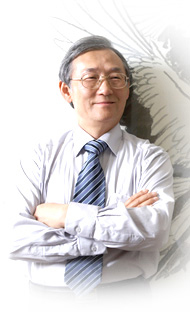Selected Speeches
Dr. Leeserved as the President of SNU from 2006 to 2010. These are selected speeches during his presidency.
Congratulatory Address for 2008 ASAK international Conference (Oct. 24, 2008)
HIT: 13323
Congratulatory Address
2008 ASAK international Conference
Dr. Jang-Moo Lee
President, Seoul National University
October 24, 2008
Shinyang Humanities Hall
Distinguished scholars, honorable guests, and ladies and gentlemen. On behalf of Seoul National University, I sincerely welcome everyone to this evening’s welcome reception prepared to honor you, who have traveled from all over the world to participate in this memorable intellectual feast.
With the dawning of the 21st century, we realize that developments made in the latter half of the previous century have brought about enormous changes in our perceptions of the world and tremendously affected various academic disciplines including American studies. One of the most important factors that have contributed to these changes is what is often called “globalization.” How, then, do global perspectives in today’s world affect the modes and conventions of our thought processes and academic disciplines? Central to our concern is the waning belief in the existence of a monochromatic dominant culture, as we now live in a world that is increasingly interdependent, multiethnic, and multicultural.
At the 2008 ASAK International Conference, we hope to explore the problems that we now face in this age of globalization. We will discuss what has been lost and left out in the process of globalization and endeavor to shed light on the neglected marginal areas. Discussions of “globalization” and “glocalization” in light of American studies will benefit all those who are concerned with the peaceful coexistence of different nations and cultures on Earth. They will be especially beneficial to Korean scholars and students of American studies whose expertise is American culture, politics, or history partly because Korea and the United States have been good friends for the past 63 years and partly because the United States has played a crucial role in the process of globalization.
We strongly hope that this Conference will help to establish scholarly links across cultures and languages, firmly placing Korean scholars as one of the links, in the emerging awareness of the global village in which boundaries between the center and the margin are rapidly collapsing. We also believe that the Conference will enable us to understand the United States more thoroughly and comprehensively. As a multicultural and multiethnic nation, the United States can provide a good example of the global village where both global and glocal perspectives are constantly encouraged. In this respect, by exploring American culture and society in depth, we may be able to understand the world better.
Once again, I heartily welcome all of you to Seoul National University, an incubator of future global citizens who have not only cosmopolitan perspectives but also international perceptions of the world in which we live.
Please enjoy your meal. Thank you so much!
2008 ASAK international Conference
Dr. Jang-Moo Lee
President, Seoul National University
October 24, 2008
Shinyang Humanities Hall
Distinguished scholars, honorable guests, and ladies and gentlemen. On behalf of Seoul National University, I sincerely welcome everyone to this evening’s welcome reception prepared to honor you, who have traveled from all over the world to participate in this memorable intellectual feast.
With the dawning of the 21st century, we realize that developments made in the latter half of the previous century have brought about enormous changes in our perceptions of the world and tremendously affected various academic disciplines including American studies. One of the most important factors that have contributed to these changes is what is often called “globalization.” How, then, do global perspectives in today’s world affect the modes and conventions of our thought processes and academic disciplines? Central to our concern is the waning belief in the existence of a monochromatic dominant culture, as we now live in a world that is increasingly interdependent, multiethnic, and multicultural.
At the 2008 ASAK International Conference, we hope to explore the problems that we now face in this age of globalization. We will discuss what has been lost and left out in the process of globalization and endeavor to shed light on the neglected marginal areas. Discussions of “globalization” and “glocalization” in light of American studies will benefit all those who are concerned with the peaceful coexistence of different nations and cultures on Earth. They will be especially beneficial to Korean scholars and students of American studies whose expertise is American culture, politics, or history partly because Korea and the United States have been good friends for the past 63 years and partly because the United States has played a crucial role in the process of globalization.
We strongly hope that this Conference will help to establish scholarly links across cultures and languages, firmly placing Korean scholars as one of the links, in the emerging awareness of the global village in which boundaries between the center and the margin are rapidly collapsing. We also believe that the Conference will enable us to understand the United States more thoroughly and comprehensively. As a multicultural and multiethnic nation, the United States can provide a good example of the global village where both global and glocal perspectives are constantly encouraged. In this respect, by exploring American culture and society in depth, we may be able to understand the world better.
Once again, I heartily welcome all of you to Seoul National University, an incubator of future global citizens who have not only cosmopolitan perspectives but also international perceptions of the world in which we live.
Please enjoy your meal. Thank you so much!
